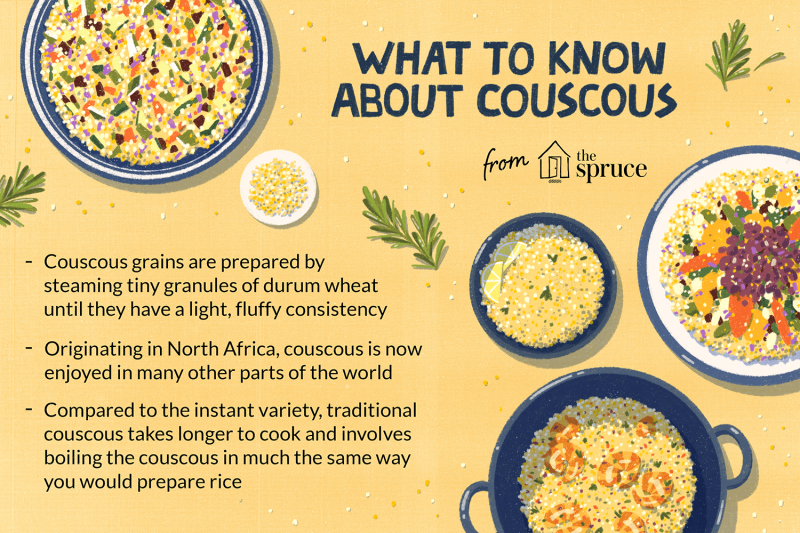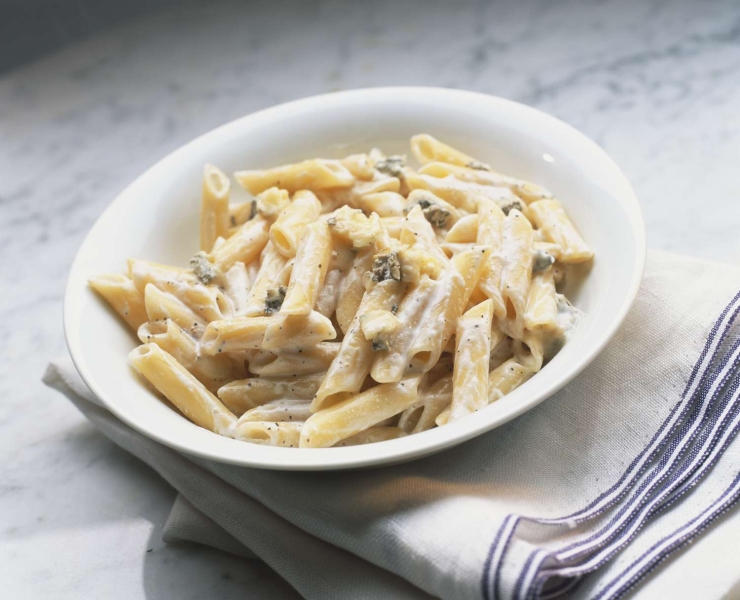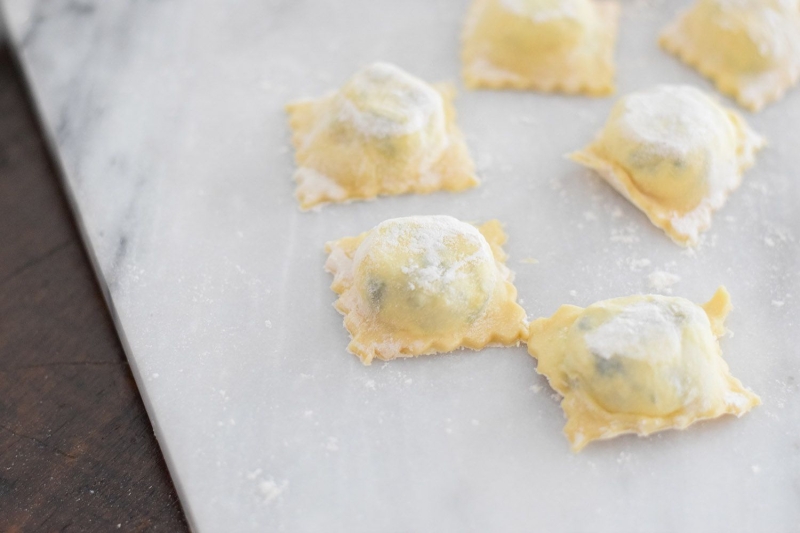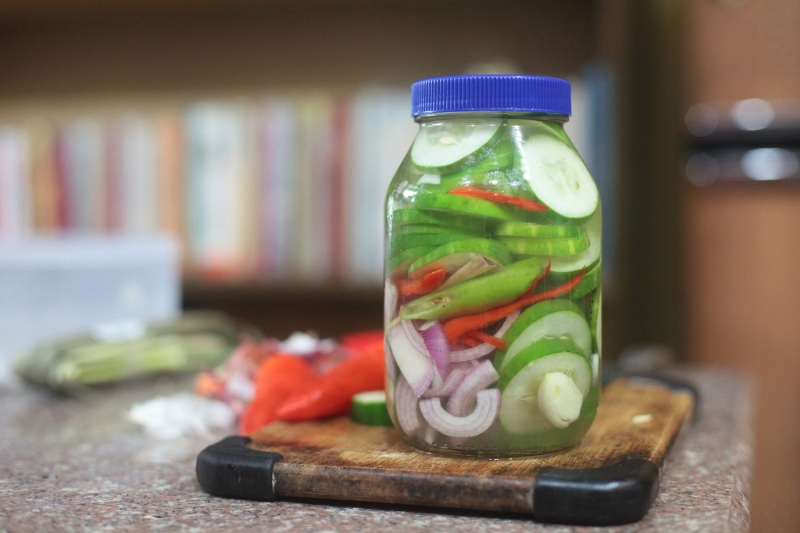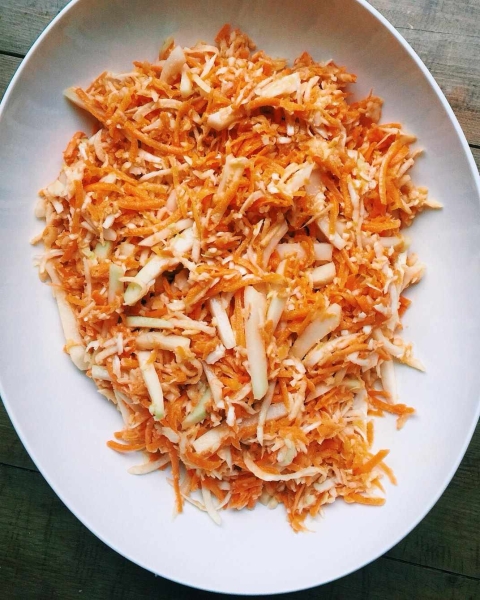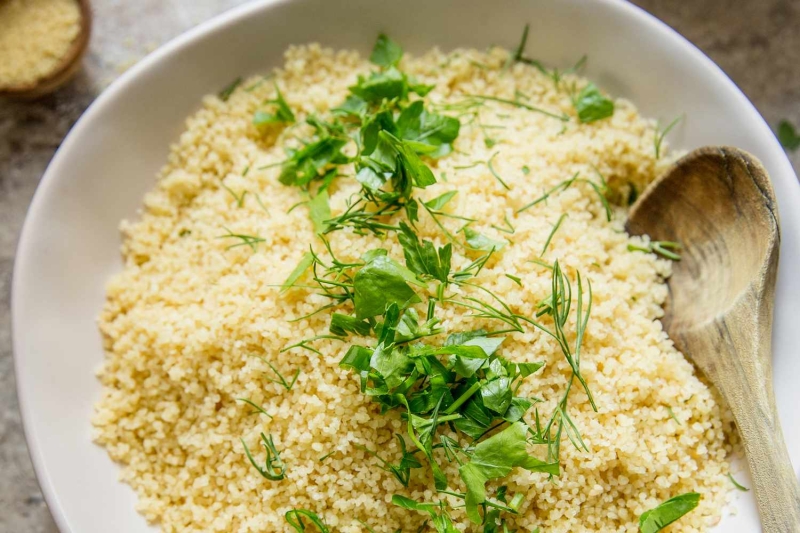
A Guide to Buying, Cooking, and Storing Couscous

Despite popular belief that couscous is a type of whole grain (it does have a rice-like appearance), it is actually a pasta made of semolina and wheat flour that is moistened and tossed together until it forms little balls. This North African staple has gained global popularity because of its tremendous flexibility, allowing for many recipe variations featuring a host of additional ingredients. Fruits, vegetables, and meats are all used as additions, making couscous an excellent main or side dish that can please just about any palate. The fact that it also cooks very quickly makes couscous a favorite ingredient in the busy kitchen; most of the couscous sold in the U.S. is instant, requiring just a few minutes of steeping in boiling water. Traditional couscous is made in a Moroccan pot called a couscoussier and requires three steamings.
Fast Facts
- Place of Origin: North Africa
- Varieties: Moroccan and Israeli
- Most Common Preparation: steeping
Couscous vs. Quinoa
They may look alike and have somewhat similar-sounding names, but couscous and quinoa are very different grains. While couscous is made from flour, quinoa is actually a seed but for simplicity is considered a whole grain. Since couscous is comprised of flours, it contains gluten, while quinoa is naturally gluten-free. You can, however, substitute one for the other in many recipes as they both have a neutral taste and pair well with other ingredients.
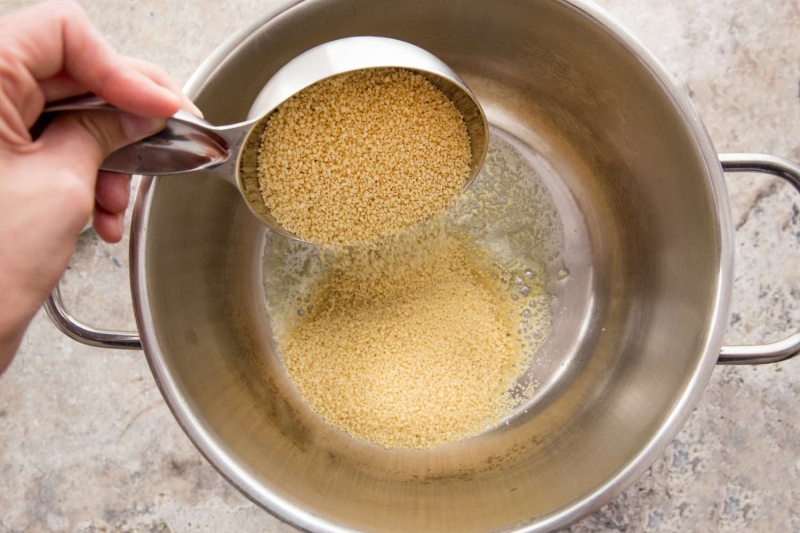
Varieties
Since couscous is a popular food in a number of cultures, there are many varieties. The three most common types of couscous include Moroccan, Israeli, and Lebanese, with Moroccan- and Israeli-style the two most often found in American supermarkets.
Moroccan couscous is the smallest couscous, with each grain only a little larger than semolina. Because of its small size, it cooks in just a few minutes. Israeli couscous, also called pearl couscous, is much larger than Moroccan couscous and closely resembles little orbs of pasta. It has more of a nutty flavor and a chewier texture than smaller varieties and takes about 10 minutes to cook. Lebanese couscous, which is also known as moghrabieh couscous, is the largest of the three types and takes the longest to cook.
For a healthier option, choose whole wheat couscous, which is made from whole wheat durum flour.
Boxed couscous in Middle Eastern countries is often handmade—a long process that does take some degree of skill to master. The couscous found in grocery stores is made by a machine and usually pre-steamed, making it an "instant" cooking variety.
Couscous Uses
Couscous can be used as a side dish, as part of a salad, added to a soup, or as a component of an entrée when combined with other hearty ingredients. Because of its "blank slate" flavor profile, it is the ideal base for a wide range of seasonings, from sweet to spicy, as well as ingredients, pairing well with anything from tomatoes to raisins.
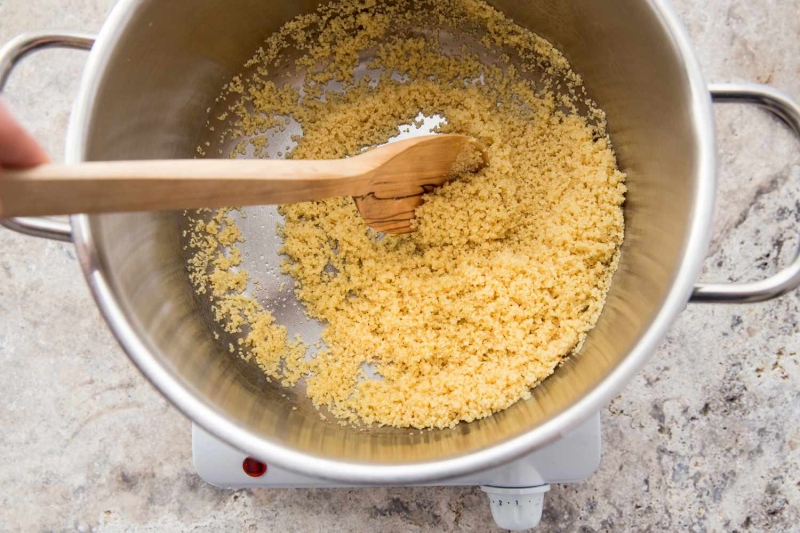
How to Cook With Couscous
Instant couscous is very simple to prepare: Bring 1 1/2 cups water or stock to a boil, remove it from the heat, and add 1 cup of couscous. Allow the water and steam to hydrate the grains (about 5 minutes), then fluff with a fork.
Traditional couscous is best triple-steamed in a couscoussier, a special pot that creates the right texture every time. While ideal, it’s not necessary and can be expensive. As an alternative, place a heat-proof colander in a stockpot, lining it with cheesecloth if the holes are too large for the couscous. Avoid covering the pot because the condensation can drip onto the grains and result in mushy couscous.
Couscous can be boiled similar to rice: Heat butter and 1 cup of couscous in a saucepan, stirring to coat. Add 1 1/2 cups water or stock, then bring to a boil. Reduce the heat to the lowest setting, cover, and continue cooking until all the liquid is absorbed. Do not cook it too long or it will be mushy rather than fluffy.
One cup of dried couscous results in 2 1/2 cups of cooked couscous. As a side dish, 1/2 to 3/4 cup of couscous is an average serving.
0:39
Easy, Three-Ingredient Couscous Recipe
What Does It Taste Like?
Since couscous is made from durum and wheat flour, it doesn't have much of a taste, similar to pasta. There is a slight nuttiness to it, but basically it is mild.
Couscous Recipes
Take a basic couscous recipe and toss in some fruit and/or vegetables, herb or seasonings, and perhaps a protein to make a complete meal. In Morocco and the Middle East, it is customary to mold the couscous into a shape using a bowl before serving.
- Couscous With Onions and Raisins
- Israeli Couscous Risotto With Parmesan and Spinach
- Vegan Couscous Stuffed Bell Peppers
Where to Buy Couscous
Even though it is considered an international food, couscous is widely available and shouldn't be difficult to find. Look for boxes, bags, or canisters either in the pasta section, the rice section, or the international foods aisle. Moroccan or smaller couscous will be the most common, but depending on how well stocked the supermarket is, Israeli couscous may be available too.
Storage
Uncooked couscous should be stored in the pantry in a well-sealed container (the unopened box, bag, or canister it came in). It can last up to two years, but if you've had the couscous for a while, smell it to make sure it hasn't gone rancid.
Cooked couscous will last about three days in the refrigerator, but it could lose its freshness sooner if it is combined with other ingredients that spoil faster.
